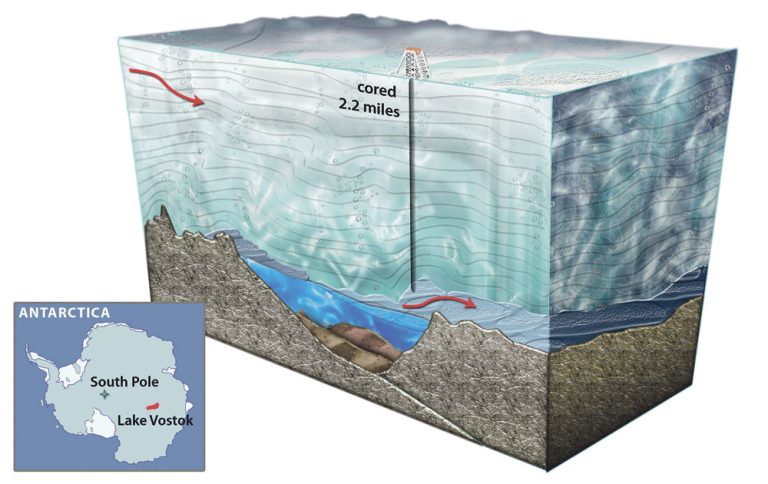Russian grant
Professor Kemo Hanjalic, emeritus professor at the Faculty of Applied Sciences, was recently awarded a grant worth 3.6
million euros from the Russian government. He is one of the 40 scientists to win a Lead
Scientist award in a competition in which 517 applications were submitted. The programme aims to attract leading scientists to Russian educational institutions in order to improve the standards and focus of research. Prof. Hanjalic will lead the ‘Laboratory for simulation of energy processes’ at Novosibirsk State University.
www.ibnfirnaslectures.tk
Poe’s science
Edgar Allan Poe is not only the godfather of horror, fantasy and detective stories, he also published revolutionary ideas on cosmology, the Big Bang and evolution before scientists did so. Rene van Slooten translated Poe’s last book, Eureka, into Dutch and is known as a ‘Poe expert’. On Thursday evening (18:00 – 20:00), Van Slooten will deliver a lecture on Poe’s ideas on science and the Quran for the Islamic student association, Ibn Firnas.
Rail crisis
The Dutch Parliament wants to know what went wrong with the trains on Friday, 3 February, when thousands of passengers were stranded. Dr Wijnand Veeneman (TPM) argued in De Volkskrant that instead of playing the blame game, NS, (trains) and ProRail (rails) should get together and build trust to face crisis situations. Veeneman: “They’re like a couple with relational troubles. The last thing they’re waiting for is a quarrelling mother in law.”
bit.ly/ns-crisis
Women builders
Coinciding with International Women’s Day, Laura Stevens presented the international version of her book, Building Passion. In it she portrays 101 women working in architecture abroad: Dutch women working abroad and vice-versa. Among them Karin Laglas (Dean of Architecture), Liesbeth van de Pol and Francine Houben. Stevens hopes to contribute to more diverse building teams by presenting influential and passionate women with an Architecture degree.
Campus management
Aging buildings, increasing demands from students and researchers, and shrinking funds are the typical problems in managing university campuses. So says Dr Alexandra den Heijer in the thesis she defended last Friday. Mounting financial pressure makes it harder to invest in the maintenance and refurbishment of buildings. However, Den Heijer argues that universities can cut costs by having faculties share facilities.
’Managing the university campus’, PhD supervisor Professor Hugo Priemus (TPM)
Tunnel drilling
Currently a third gigantic drilling machine is being prepared in order to continue building the Noord/Zuid metro tunnel that runs 17 metres under the surface of Amsterdam. The drilling process through soft soils brings with it new experiences and knowledge. An agreement between the municipality of Amsterdam and the faculty of Civil Engineering and Geosciences (CEG) aims to archive, process and spread this knowledge. Last month an accord was signed by CEG’s dean, Professor Louis de Quelerij, and Peter Dijk, director of Noord/Zuidlijn.
Bang
It was a huge bang. Fortunately for Mark Sliphorst he was standing safely behind armoured glass as his high-speed camera filmed the detonation inside a rocket engine through a small window, when that window was blown to bits. This month Sliphorst (AS) defends his dissertation on combustion in rocket engines. His work, which he conducted at the Institute of Space Propulsion in Germany, will allow researchers to model pressure waves inside the combustion chambers. This is difficult to model due to the fact that both the inserted fuel and oxygen are in liquid form. “It isn’t well understood how these two liquids mix.” In the middle of the chamber the temperature can rise to up to 3000 °C. Thermal boundary layers prevent that high temperature from reaching the walls, which can only resist to about 1200 °C. But if the instabilities become too great, the heat is transferred and the combustion chamber melts.


Lake Vostok
After decennia of attempts and misfortunes, a Russian team in the Antarctic has finally reached its largest underground lake, Lake Vostok. The 350 meter deep water reservoir is covered with 3.769 meters of ice and it has been closed off from the rest of the world for 15 to 25 million years. Scientists are very curious to know if life exists in the lake and what it might look like. They will have to wait another year, it seems, because the lake’s water rose by 30 to 40 meters (due to the pressure of the ice), froze immediately and fixed the drill. With the end of the summer in sight, Russians are now packing up.


Comments are closed.